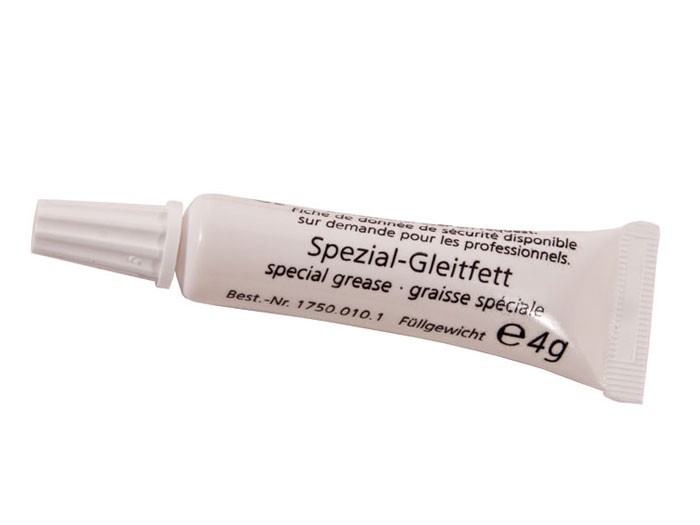I have Hoppes cleaning supplies for My "Powder Burners, Will they harm the O Rings in My new Air Rifle? I figured I had better ask the Knowledgeable! What say you? In My area selection on anything "Air Rifle" is almost non-existent.
You are using an out of date browser. It may not display this or other websites correctly.
You should upgrade or use an alternative browser.
You should upgrade or use an alternative browser.
Cleaning products
- Thread starter Chief Ten-Beers
- Start date
I've used Hoppes #9 for cleaning the bore of my air rifles for years. My breech and bolt O-rings, whether Buna-N or polyurethane, always end up failing due to wear (abrasion). When removed, they show no detectable difference in compliance of the sort you would expect from chemical degradation such as brittleness or a gummy consistency.
Upvote 0
i like silicone divers grease for orings,
and wd40 for the bore.
(after removing any orings)
and wd40 specialist silicone in the blue and silver can for everything else

and wd40 for the bore.
(after removing any orings)
and wd40 specialist silicone in the blue and silver can for everything else
Upvote 0
If you are asking about the bore, and assuming the barrel has no tooling damage, I don't think it makes much difference. I use Ballistol, but WD-40 is fine as a cleaning agent (not as a lubricant). Air rifles don't generate the pressure and heat as found with firearms, and there is no jacket material. Silicone is fine as an O ring lube, but lousy with metal. Plus, it can cause seizing if used on metal connections subject to high pressure or heat. I see no need in using it, except as an assembly lube if dealing with O rings or plastic parts.
Upvote 0
Thanks for the replies! I can't find Ballistol anywhere in My Area. I will have to order some I guess.
Upvote 0
Silicone oil and grease are designed to seal parts such as o-rings (soft) with other surfaces, including metal, not to lube them.
Ballistol works well for cleaning airgun barrels and it is nontoxic, if still stinky. Smells of vinegar and something else, similar to sweaty feet that have been wearing synthetic socks.
Sealing, lubing, and cleaning might or might not require different fluids. Your owner’s manual should include warnings where appropriate. For example, my Beeman P3 manual says do not use silicone oil or grease for metal-to-metal parts, such as hinges. In this case, a drop of ND motor oil is OK, as it is in my other guns.
When in doubt, I call the tech rep number before proceeding.
I had to order the Ballistol. You will also find an eyedropper or syringe useful for applying one drop at a time. I put a few drops in the cap and then dip a cleaning patch in it.
Ballistol works well for cleaning airgun barrels and it is nontoxic, if still stinky. Smells of vinegar and something else, similar to sweaty feet that have been wearing synthetic socks.
Sealing, lubing, and cleaning might or might not require different fluids. Your owner’s manual should include warnings where appropriate. For example, my Beeman P3 manual says do not use silicone oil or grease for metal-to-metal parts, such as hinges. In this case, a drop of ND motor oil is OK, as it is in my other guns.
When in doubt, I call the tech rep number before proceeding.
I had to order the Ballistol. You will also find an eyedropper or syringe useful for applying one drop at a time. I put a few drops in the cap and then dip a cleaning patch in it.
Upvote 0
+1 for ballistol... smells like pine-sol to me but have been using it on 4 guns for the last year and they've all done well on seals/diaphragms/orings/etc
Upvote 0
I've always heard you should use a non petroleum based cleaner and lube in air guns. I also shoot black powder guns and they also require a non petroleum based cleaner. So lately I've been using this T17 Black Powder solvent in my springers with very good results.
I have not had any dieseling. It also leaves a protectant in the bore that prevents rust.

I have not had any dieseling. It also leaves a protectant in the bore that prevents rust.
Upvote 0
Ballistol is one of the best clp's ever made,...plus being more environmentally friendly than Hoppes #9.
I just keep Hoppes #9 around for date night, with my wife...a little dab behind the ears does wonders! (snark)
I just keep Hoppes #9 around for date night, with my wife...a little dab behind the ears does wonders! (snark)
Upvote 0
Good to know. Thanks.I've always heard you should use a non petroleum based cleaner and lube in air guns. I also shoot black powder guns and they also require a non petroleum based cleaner. So lately I've been using this T17 Black Powder solvent in my springers with very good results.
I have not had any dieseling. It also leaves a protectant in the bore that prevents rust.
View attachment 465716
Upvote 0
Bwahaha thats too goodBallistol is one of the best clp's ever made,...plus being more environmentally friendly than Hoppes #9.
I just keep Hoppes #9 around for date night, with my wife...a little dab behind the ears does wonders! (snark)
Upvote 0
Silicone oil and grease are designed to seal parts such as o-rings (soft) with other surfaces, including metal, not to lube them.....
No. The grease is mostly intended as a lubricant to prevent abrasion or damage to the rubber as it contacts the mating surfaces during installation and/or removal. There can be some additional sealing benefit in certain situations, such as if the rubber is already slightly abraded, but they are not typically designed to need grease for a proper seal.
Upvote 0
I like FWB special grease for most airguns. I know it is made with unobtanium...but it works well. A tube will last almost forever,...

 www.pyramydair.com
www.pyramydair.com

Feinwerkbau Special Gun Grease for FWB PCPs, 4g | Pyramyd AIR
We've got a great price on Feinwerkbau Special Gun Grease for FWB PCPs, 4g at Pyramyd AIR. Shop where the experts do!
Upvote 0
No. The grease is mostly intended as a lubricant to prevent abrasion or damage to the rubber as it contacts the mating surfaces during installation and/or removal. There can be some additional sealing benefit in certain situations, such as if the rubber is already slightly abraded, but they are not typically designed to need grease for a proper seal.
See the section titled “Use silicone oil—wisely”.

Airgun Lubricants – The Good, the Bad and the Ugly | Blog | Pyramyd AIR
By B.B. Pelltier Lubricating an airgun is necessary, yet it can be tricky at the same time. To begin with, airguns are often made of different materials than firearms, so cleaning and lubricating them with the same products you use on the rest of your guns is not a good idea. You probably...
www.pyramydair.com
I saw lots of descriptions for silicone grease and oil, but I don’t think they’re all the same. I have dielectric silicone grease for use on boat trailer electrical connections. I think its purpose is to both keep water from getting in while still allowing electrical conductivity. Whether that’s acceptable for sealing o-rings in airguns I don’t know.
I’ve also used divers’ silicone grease on latex neck gaskets of drysuits, to seal the gasket to neck without causing chafing. In that case it was both a sealant and kind of a lube.
Did not look for MSDS of any of these products.
Upvote 0
See the section titled “Use silicone oil—wisely”.

Airgun Lubricants – The Good, the Bad and the Ugly | Blog | Pyramyd AIR
By B.B. Pelltier Lubricating an airgun is necessary, yet it can be tricky at the same time. To begin with, airguns are often made of different materials than firearms, so cleaning and lubricating them with the same products you use on the rest of your guns is not a good idea. You probably...www.pyramydair.com
I saw lots of descriptions for silicone grease and oil, but I don’t think they’re all the same. I have dielectric silicone grease for use on boat trailer electrical connections. I think its purpose is to both keep water from getting in while still allowing electrical conductivity. Whether that’s acceptable for sealing o-rings in airguns I don’t know.
I’ve also used divers’ silicone grease on latex neck gaskets of drysuits, to seal the gasket to neck without causing chafing. In that case it was both a sealant and kind of a lube.
Did not look for MSDS of any of these products.
The dielectric grease for electrical connectors that you mention certainly does help to create a water barrier (one that cannot withstand any pressure), and this does have a sealing action. But this is a completely different mechanism than what is happening with o-rings. Same goes for the diver suit. My post above is only in reference to o-rings and the like. The Pyramyd article you included mentions that silicone oil is not good for metal-on-metal lubrication, but is quite good for rubber on metal lubrication. I agree with this, and it is in-line with what I was saying in the other post.
Upvote 0
Got it.
I should know not to cite manuals without having them in front of me, which I do now. Under the P1/P3/P11 Maintenance section, the recommended lube for “Barrel hinge and other bearing surfaces” is “a good lubricating gel.” Only one drop per side, to avoid galling. I had not heard of lubricating gel, so that’s why I called the tech rep. He said do not use silicone oil for that purpose. I asked if ND motor oil was OK, which it is.
For o-rings against metal—IF needed—he said to use silicone oil or grease, as noted also in the Pyramyd Air piece.
RE: the original topic, the manual clearly states, “Do not use regular firearm bore cleaners as they may damage the seals and cause dieseling.”
I’m sticking with Ballistol for the occasional bore cleaning on that gun. When I contacted Daisy about cleaning the 880’s bore, the rep strongly advised against doing anything more than running a dry patch once in a great while. On mine, running a couple of dry patches after more than 5200 pellets shot revealed that the bore was still not that dirty.
YMMV—and gun manufacturer advice can differ a lot between guns.
I should know not to cite manuals without having them in front of me, which I do now. Under the P1/P3/P11 Maintenance section, the recommended lube for “Barrel hinge and other bearing surfaces” is “a good lubricating gel.” Only one drop per side, to avoid galling. I had not heard of lubricating gel, so that’s why I called the tech rep. He said do not use silicone oil for that purpose. I asked if ND motor oil was OK, which it is.
For o-rings against metal—IF needed—he said to use silicone oil or grease, as noted also in the Pyramyd Air piece.
RE: the original topic, the manual clearly states, “Do not use regular firearm bore cleaners as they may damage the seals and cause dieseling.”
I’m sticking with Ballistol for the occasional bore cleaning on that gun. When I contacted Daisy about cleaning the 880’s bore, the rep strongly advised against doing anything more than running a dry patch once in a great while. On mine, running a couple of dry patches after more than 5200 pellets shot revealed that the bore was still not that dirty.
YMMV—and gun manufacturer advice can differ a lot between guns.
Upvote 0
The Hoppes #9 debate is a false flag, it's just fine on o-rings and airgun bores.
I use Balistol a lot but when stubborn leading is present, I'll break out the Hoppes.
For my guns and my customers guns, metal to metal contact points, pins etc get 30W non-detergent motor oil, springs get light machine oil, bores get cleaned and waxed, o-rings in assembly get lubri-film silicone grease and everyday lube is a few dropps of silicone oil in the air-port when filling.
I use Balistol a lot but when stubborn leading is present, I'll break out the Hoppes.
For my guns and my customers guns, metal to metal contact points, pins etc get 30W non-detergent motor oil, springs get light machine oil, bores get cleaned and waxed, o-rings in assembly get lubri-film silicone grease and everyday lube is a few dropps of silicone oil in the air-port when filling.
Upvote 0